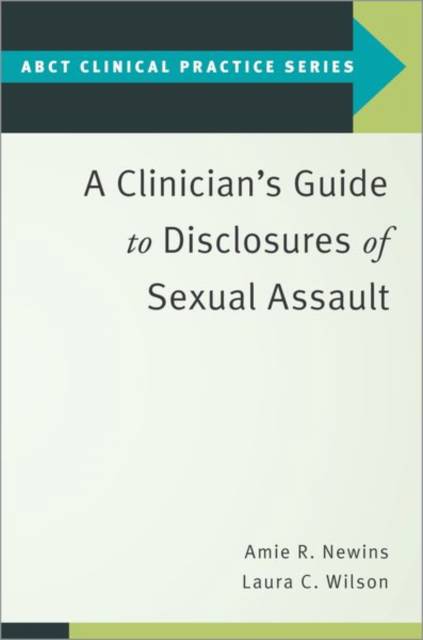
- Afhalen na 1 uur in een winkel met voorraad
- Gratis thuislevering in België vanaf € 30
- Ruim aanbod met 7 miljoen producten
- Afhalen na 1 uur in een winkel met voorraad
- Gratis thuislevering in België vanaf € 30
- Ruim aanbod met 7 miljoen producten
Zoeken
€ 87,45
+ 174 punten
Omschrijving
Sexual assault is a worldwide public health concern, as it occurs to people of all genders at alarming rates and results in serious impacts to physical and mental health. Furthermore, the reactions that survivors receive from formal and informal supports can significantly influence survivors' recovery. Given the prevalence of sexual assault, practitioners need to be prepared to handle disclosures of sexual assault from clients. A Clinician's Guide to Disclosures of Sexual Assault provides guidance for service providers on how to interact with survivors of sexual assault, defined here as sexual contact or penetration without the explicit consent of the victim. The book highlights that there are specific populations (e.g., sexual minorities, men) and settings (e.g., military, higher education) that require unique considerations when discussing sexual violence. Beginning with a foundation of literature focused on sexual assault and survivor disclosure, chapters build upon current theory and offer recommendations for conducting effective assessments and psychotherapy with survivors. Finally, case examples are presented to illustrate how these approaches can be used in practice. Professionals across disciplines, such as medical or educational settings, law enforcement, and victim services, have an instrumental role in facilitating survivor recovery, and this book offers best practices for delivering services in an affirming manner.
Specificaties
Betrokkenen
- Auteur(s):
- Uitgeverij:
Inhoud
- Aantal bladzijden:
- 112
- Taal:
- Engels
- Reeks:
Eigenschappen
- Productcode (EAN):
- 9780197523643
- Verschijningsdatum:
- 30/07/2021
- Uitvoering:
- Paperback
- Formaat:
- Trade paperback (VS)
- Afmetingen:
- 159 mm x 235 mm
- Gewicht:
- 176 g

Alleen bij Standaard Boekhandel
+ 174 punten op je klantenkaart van Standaard Boekhandel
Beoordelingen
We publiceren alleen reviews die voldoen aan de voorwaarden voor reviews. Bekijk onze voorwaarden voor reviews.











